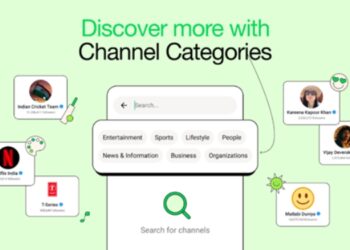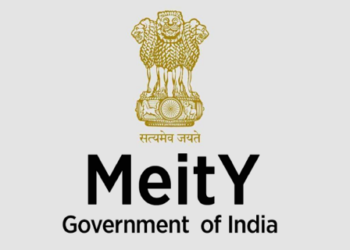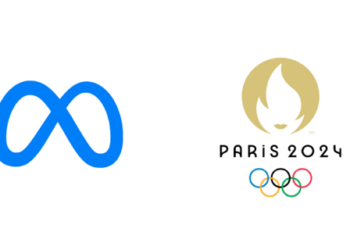On the 24th of June, 2021 Google announced the long-feared death of the 3rd-party cookies will be delayed almost two years, till late 2023. Company representatives explained they want to give the market more time to prepare for the upcoming changes so that publishers and advertisers do not lose the opportunity to earn money. Google also announced a “thorough, comprehensive and public development process that involves detailed discussion and testing” for FLoC and other tools. The Verge considers it a message FLoC technology will be significantly changed or abandoned entirely.
Chrome Director of engineering Vinay Goel said the delay will allow public discussion around the alternative user tracking tools while giving publishers and advertisers enough time to bring their products and solutions in line with new rules.
Google’s decision to stop supporting 3rd-party cookies in its Chrome browser became official in January 2020. Two months later the company warned it would neither create nor support alternative User ID-based solutions.
It came as a huge shock to the market — for a long time, cookies were the most popular targeting instrument, and Google Chrome accounts for 64% of the global browser market. Google Ads and Google Ad Manager experts have conducted an experiment, temporarily disabling cookies for 500 global publishers. The study found that the average income of publishers after disconnecting third-party cookies will decrease by 52%.
What’s the deal with the Cookies?
The main problem with the cookies lies entirely in the definition of the term. Cookies allow advertisers, publishers, and various intermediaries to gather too much user info — and it’s not always specified when, where, and how they’ll use this data, and for how long they’ll store it.
Users were worried about how apps and websites were using their data long before the decision to opt-out of cookies back in 2013, according to The Guardian, 66% of smartphone users became more concerned about how protected their personal information is, and 79% refused to use apps if unsure they were protecting their personal information effectively enough.
Over the years, these worries have only grown, as well as accusations against Google and other tech giants of misusing the collected data. In March 2021 Google faced a $5 billion lawsuit, where the company was accused of spying on users even when they were in incognito mode. And this is not the only privacy-related lawsuit against the company in recent years.
It is safe to say that the trend for the protection of users’ personal data will intensify in the coming years. In addition, Chrome’s main competitors — Safari and Firefox — are significantly more aggressive in blocking tracking than Google’s browser. All these factors led to the fact that in January 2020 Google announced that in early 2022, the company will phase out support for third-party cookies in Chrome.
Shutdown timeline
The company explained that ditching 3rd-party cookies too quickly would do more harm to publishers and advertisers than it would benefit users, and would also encourage market players to use more unethical ways of collecting data.
On the same day, the company presented an updated timeline for testing and implementing Sandbox solutions.
24 June 2021 – Google said it would not disable cookies in its browser until the end of 2023, giving market players two more years to prepare.
2021-2022 — testing solutions within the Privacy Sandbox: according to the director of engineering for Chrome, Vinaya Goel, there are about 30 in development.
The second half of 2022 — after the end of the tests and the introduction of new APIs in Chrome, publishers, and advertisers will be able to port and adapt their services to new tools and requirements. According to the company’s forecasts, this stage will take about 9 months.
Mid 2023 — Over the course of three months, Chrome will gradually phase out support for third-party cookies, and will completely stop supporting them by the end of 2023.
Universal solution vs. a set of tools
The main reason for the postponement of the death of Cook Google called the unavailability of the market and the fact that alternative solutions are not sufficiently tested to evaluate their effectiveness. What decisions are we talking about?
1st-party cookies
1st-party cookies include login data and user behavior patterns directly on the websites that the user visited. When registering, users leave contact information and give open consent to their use, including for advertising purposes.
These cookies are set on the client-side when the user navigates to the site from advertising campaigns, social networks, and other channels. Safari erases such data after 24 hours or 7 days, and this data is not passed on to third parties, such as intermediaries.
FLEDGE
FLEDGE will operate on the principle of a trusted server that will store information about the bids and budgets of the advertising campaign, as well as comply with certain principles. The FLEDGE idea was co-authored by Criteo, NextRoll, Magnite, and RTB House.
FLEDGE decides on the ad auction within the browser, rather than at the ad server level, so less user data is needed to create user profiles.
Contextual Targeting
This tool matches ads to web page content, so a user reading an article about stocks will only see relevant ads.
«While contextual targeting is not new, machine learning-based solutions such as MGID Contextual Intelligence (CI) make contextual targeting far more effective.
Contextual intelligence is 100% privacy-friendly because ads are targeted to what’s on the page and not any user data. The advertised content is relevant to the user intent at the moment. Let’s consider the example of b2b ads: targeting is more effective while the user is consuming business news at work. The user will be more likely to ignore the same ad if they see it when making dinner reservations», Dmitriy Kazansky— Head of Product, MGID North America says.
Universal ID
Universal ID is a technological solution that allows users to be identified using 1st-party website identifiers (1st-cookies and encrypted email or phone number obtained during registration).
After disabling 3rd-party cookies for publishers, this will be one of the few ways to prevent advertising budgets from spilling over to large technology platforms with their own authorization systems.
Login data-based ID
A permanent identifier in the form of an encrypted email or phone number a user provides during registration. It is stored on the server for at least 30 days.
How the industry reacted
Google’s announcement of the postponement of the death of cookies shook the market, forcing most of the major players to react to the news in one way or another. The industry’s opinions were divided — some welcomed the postponement, others said it would not fundamentally change anything.
«When word of Google’s announcement hit, AdTech stocks immediately surged illustrating the industry’s positive reaction to the news. The extension granted by Google allows the industry to engineer permanent solutions for third-party cookie alternatives versus the current band-aid solutions that AdTech and MarTech players have been grappling with.
Despite the established privacy shortcomings, third-party cookies have been an effective way of storing, sharing, using, and monetizing data, as well as measuring users’ exposure to ads for frequency capping and attribution purposes. As the AdTech Industry attempts to counter the demise of third-party cookies with alternative solutions, it’s important to understand the pros and cons of each option, »Nickolas Rekeda— CMO at MGID explains.
Market players agree on one thing: the industry was granted some breathing room, and both advertisers and publishers have a chance for a more thorough adaptation of their services to the new normal, as well as finding a viable alternative to the 3rd-party cookies.
















